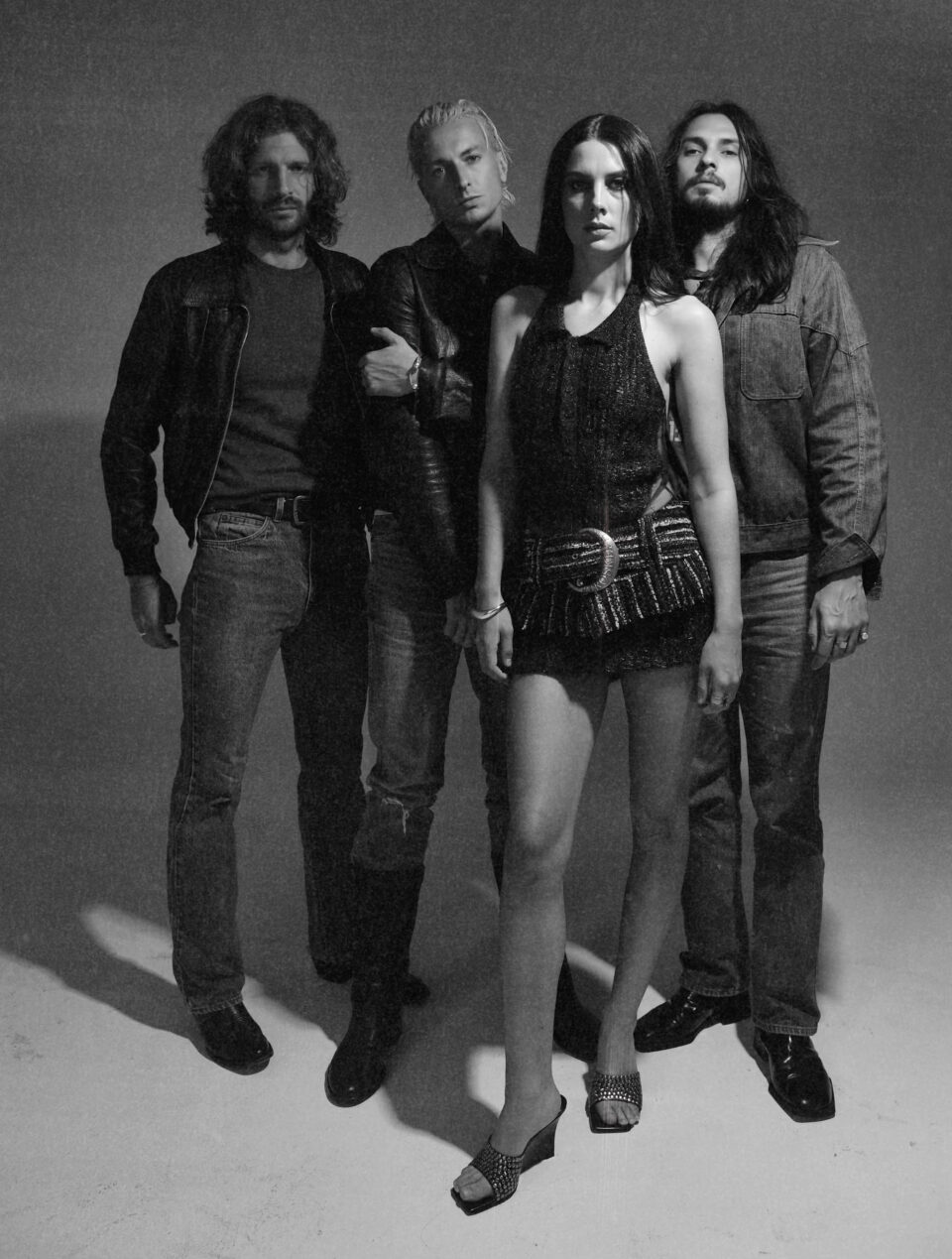This story appears in FLOOD 13: The Tenth Anniversary Issue. You can purchase this special 252-page print edition featuring Gorillaz, Magdalena Bay, Mac DeMarco, Lord Huron, Bootsy Collins, Wolf Alice, and much more here.
Attending a show solo allows one to wander freely sans small talk—truly an underappreciated luxury in contemporary culture. In doing so, the spectator can glean a great deal about the headlining act via the various fandoms and subcultures present. Recently, I perused a growing crowd in Los Angeles’s legendary rock venue the Troubadour, curious to see how a band’s polystylistic sound was reflected in its live audience. The group in question was Wolf Alice, who were on the verge of landing their second consecutive #1 album in the UK with The Clearing, released at the end of August.
Despite the band’s considerable fanbase, notable silver-screen appearance, and substantial hits (the cinematic, synth-heavy “Don’t Delete the Kisses”; the raucous, GRAMMY-nominated “Moaning Lisa Smile”), the group’s UK success hasn’t always translated to American notoriety. Yet in the UK and Ireland, Wolf Alice have proven worthy of the prestigious Mercury Prize (which they picked up in 2018 for their sophomore album Visions of a Life) following in the footsteps of artists such as Portishead, Arctic Monkeys, and PJ Harvey. The win cemented their status as critical darlings and was a sign that, in an era of musical homogenization, true artistic daring was still being lauded.
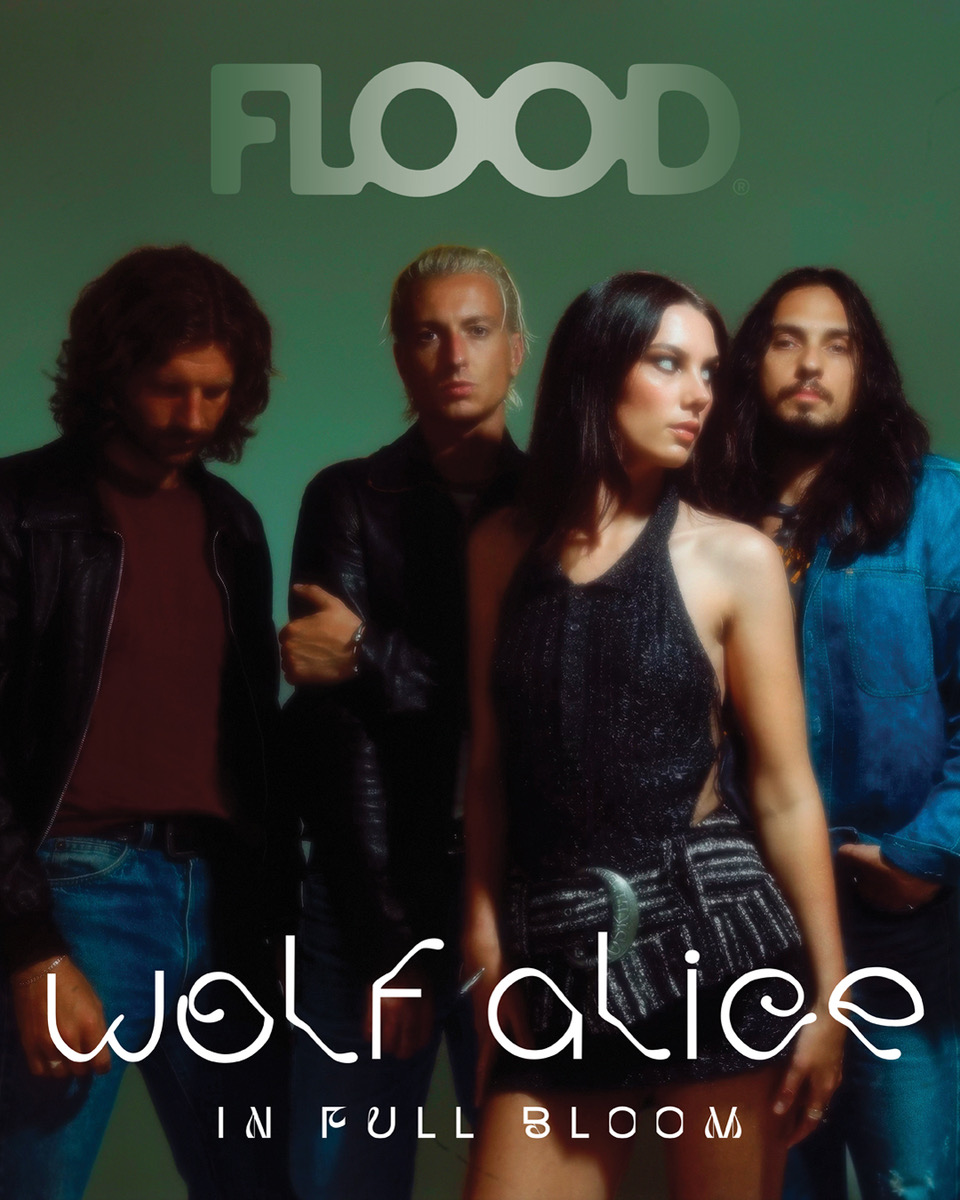
Aggressive, raw, distorted sound with furious vocals—these are a few of my favorite things, and these aural attributes also happened to be woven throughout Wolf Alice’s early work. While I quickly took to their first few records—the “messy, harder stuff” like “You’re a Germ” off their 2015 debut My Love Is Cool, and “Yuk Foo” from 2017’s Vision of a Life—I was surprised and completely captivated by the beauty of their varied, swelling tracks, too. I found myself utterly lost in songs like “Bros,” “Lipstick on the Glass,” “Feeling Myself,” and the blues-rock-driven, hypnotic, harder rock tune “Formidable Cool.”
Returning to my reconnaissance mission for a moment, the wildly varied age demographic at Wolf Alice’s recent Troubadour gig seemed to reflect the variety of sounds heard across the band’s discography. Huddled by the stage was a young person in a HAIM shirt. When Lana Del Rey’s “Say Yes to Heaven” inevitably came on, someone eagerly yelled, “I love this song!” We all do, of course. Then, as the Buzzcocks pumped through the speakers, the Gen-Xers sitting by the bar or lined up on the wall bobbed their heads in agreement.
It wasn’t just age, though. Some people were dressed as if filming the opening club scene in 1998’s Blade, while others looked like they were here to see Joni Mitchell. It’s difficult to put a finger on exactly what sort of music, energy, or performance you’ll walk into when you’re going to see Wolf Alice. You can’t pin this band down, and that mystery only makes them all the more intriguing. It seems as though that’s precisely what vocalist/guitarist Ellie Rowsell, guitarist Joff Oddie, bassist Theo Ellis, and drummer Joel Amey were proud to have crafted up until this point.

But on The Clearing, Wolf Alice’s intention shifted toward creating a more cohesive work, which they’ve accomplished with great success. When I sit down with the London-based band to talk about their first album with Columbia Music, they’ve already performed spectacular sets at this year’s Primavera Sound and Glastonbury. It’s a significant moment for the quartet, who’ve spent over a decade building a sonic universe together that feels at home in intimate venues and massive festivals alike. Following their phenomenal UK success, they’re on the precipice of grasping that elusive concept of American stardom—and it feels possible.
Rowsell elaborates on the process of crafting the new album in a conference suite at a West Hollywood hotel: “Eventually, you make enough stuff to start sharing it amongst each other, but this time around we shared a couple of things and then were like, ‘Maybe we should talk about what kind of direction we want to go in,’ rather than just thinking, ‘Oh, we’ve got this collection of songs now,’ so that people have more focus. I think a coherent sound was important to us for this record. It’s not something we’ve spoken about or ever really done, to be honest, but it just felt like a new challenge.”
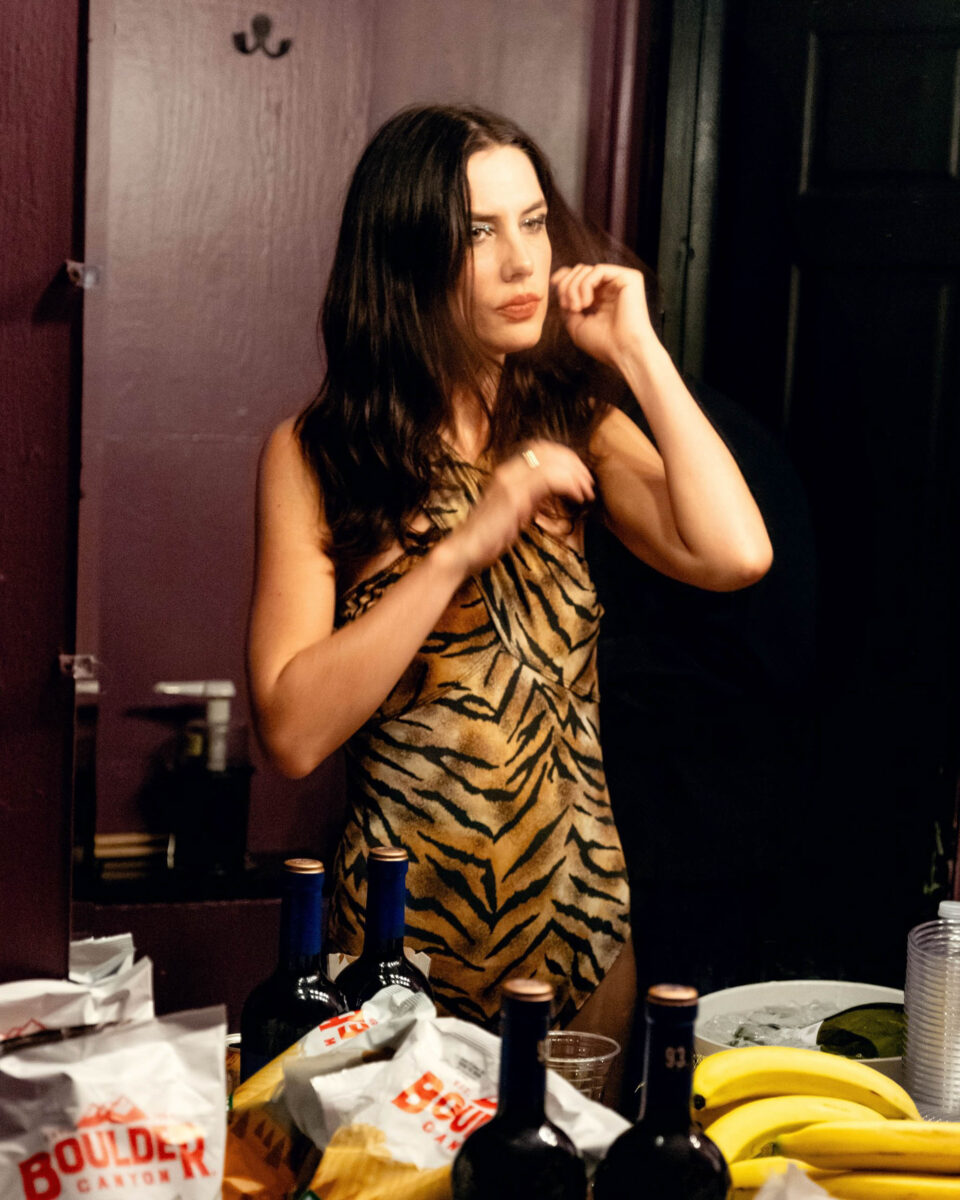
photo by Tanner Deutsch
“I think a coherent sound was important to us for this record. It’s not something we’ve spoken about or ever really done, to be honest, but it just felt like a new challenge.” — Ellie Rowsell
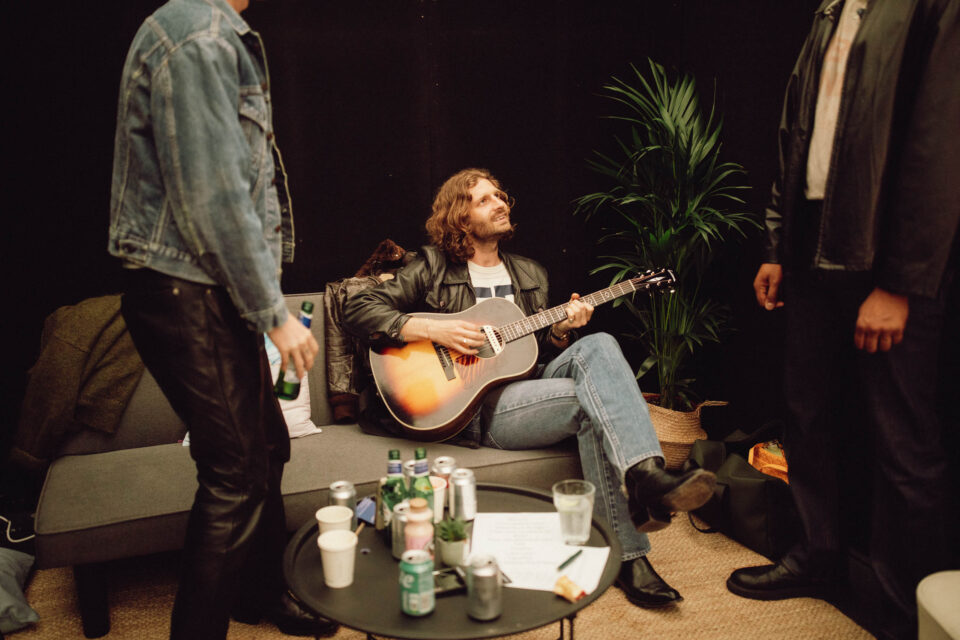
photo by Harriet Bols
“A lot of people get confused by us, to be honest,” chuckles Ellis, echoing Rowsell’s sentiments. “Plenty of people maybe don’t like it because they don’t understand what it is overall, which is completely fair enough. Ultimately, there’s an innate [knowing between us]. We have a nice alchemy thing where we can tell it’s a Wolf Alice song. How we then dress that song in terms of production has been enjoyment-led—what we’re curious about, what’s satisfying—and I think that we were trying to be more cohesive this time.”
The conversations surrounding genre distinctions are tiresome, but for the sake of categorization, Wolf Alice’s sound has historically flowed freely between alt-rock, dream-pop, and indie-folk, with some forays into electronic sounds and palpable grunge and punk influences frequently discernible. They are, at their core, a glorious paradox: shapeshifters who have somehow carved out a sound that’s unassailably their own in an oversaturated, often sterile and predictable mainstream music landscape. In the sprawling, often chaotic tapestry of modern rock and roll, few bands have managed to stitch together a career as consistently thrilling.
“Ultimately, there’s an innate knowing between us. We have a nice alchemy thing where we can tell it’s a Wolf Alice song.” — Theo Ellis
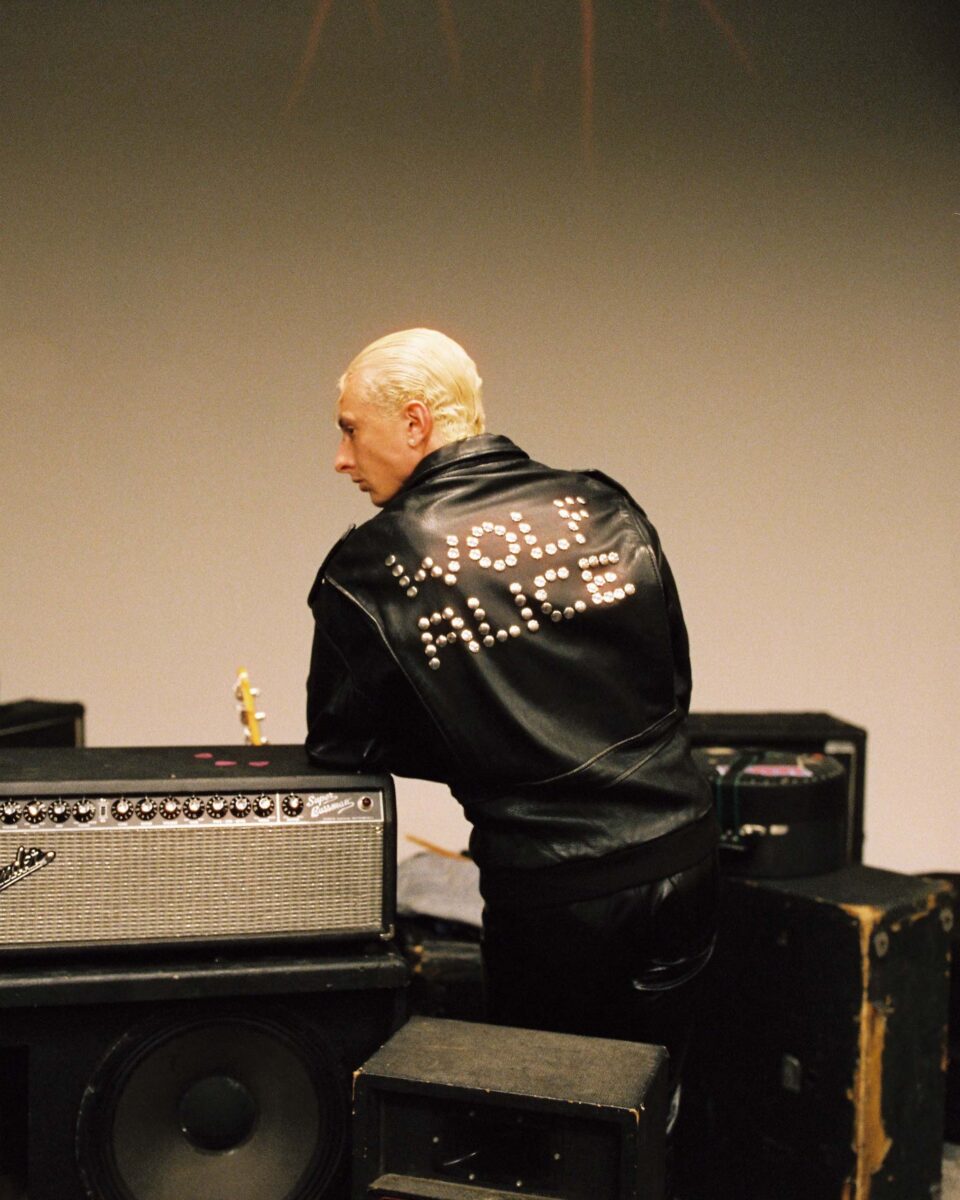
photo by Harriet Bols
Their last album, 2021’s Blue Weekend, showcased lush epics that felt deeply vulnerable, devastatingly beautiful, and joyfully hopeful. It was a record that earned them a Brit Award for Best Group and their first UK #1 album. It also marked their foray into a more refined, deliberate sound. Forming an identity is a never-ending project, but The Clearing further refines the aesthetic of Blue Weekend, while delving into a direction more defined by classic rock that’s further shaped by pop sensibilities and some jazz influence—think Fleetwood Mac, Steely Dan, or Carole King. They did so with the help of mega-producer Greg Kurstin, who has a remarkable track record, having helped craft hits for an eclectic roster of icons including Kendrick Lamar, Paul McCartney, Foo Fighters, and Stevie Nicks.
“The clearing” is a phrase mentioned in the final verse of the jaunty “Bread Butter Tea Sugar.” It suggests a new beginning, a moment of hope amid a toxic (albeit thrilling) relationship dynamic. When asked if this album was a needed expression of clarity in some way, Rowsell admits, “I think for a long time we’ve been kind of doing this nonstop, going from record to record, tour to writing to studio.” Whether prompted by the stillness of the COVID-19 pandemic or simply the passage of time, Rowsell says she was no longer waiting for the epiphany of becoming a “proper adult” or a “proper musician” to dawn (“I also felt quite young doing it—maybe mentally I was younger than I literally was,” she adds with a laugh). The time to claim ownership and agency was now, and she had been all of those things all along. “I took stock of what it is that we’re doing. I realized how great it is that I get to do this and how important I wanted it to be.”

photo by Tanner Deutsch
Cohesion aside, when Wolf Alice steps on stage, it quickly becomes apparent that these are poised, seasoned veterans at the top of their game who’ve got skill and confidence as well as a catalog of catchy hits as varied as the audience they’ve developed. During their Troubadour run, Rowsell broke out a megaphone and jumped into the audience at some point, and by god was it effective. Some other noteworthy observations from a live-performance perspective include Amey’s set of pipes (singing while drumming will always impress me), flawless harmonies across the board, and the plaguing thought that there must be a mysterious, mystical energy radiating from the eyeshadow worn by Rowsell. It doesn’t hurt that Ellis, the lively bassist, is also giving Spike from Buffy.
Rowsell’s a force of nature on stage, to be sure, and has been compared to other vocalists and performers like Karen O, Kurt Cobain, Kate Bush, and Siouxsie Sioux. “This album is interested in the performances of crooners and show tunes like Liza Minnelli and Frank Sinatra, and people who sing very energetically and very performatively—not in a classic ‘rock’ or ‘indie band’ way,” Rowsell clarifies when discussing the maturation of her on-stage persona—and cultivating a powerful presence more generally on The Clearing. The idea is illustrated clearly in the new album’s cover, featuring Rowsell in an iridescent green leotard on stage, mid-expressive performance, the only individual visible in a spotlight.
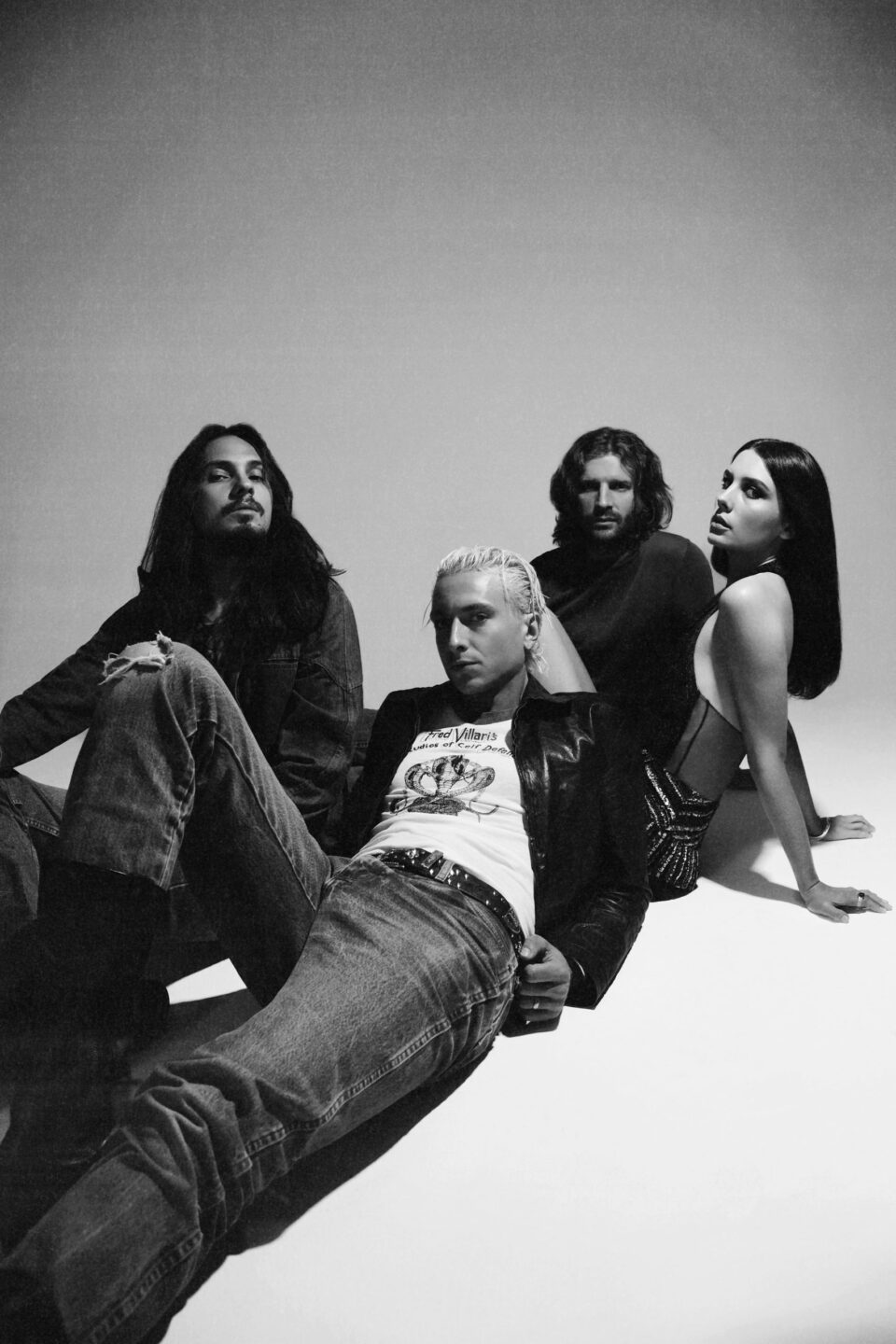
Additionally, the music video for “Bloom Baby Bloom” features a deconstructed classic rock performance complete with Bob Fosse–inspired choreography. It’s a song about growth and the power of reclaiming one’s potential amid the muck and turmoil of a taxing relationship. “Bloom” is a delightfully bonkers, avant-garde pop triumph of a track that proves Wolf Alice is allergic to stasis. It’s also what I would consider the “hardest” song on the new album. It opens with a repetitive piano motif that could’ve been lifted from a minimalist composition before crashing into a maelstrom of tight percussion, grooving bass, and an anthemic chorus. It’s a track that suggests that it was made by a band that’s willing to continually boldly stretch their sound, who isn’t content to simply rest on its laurels.
“I’ve been interested in how to get energy in a live performance that doesn’t rely on shouting or running around or distortion pedals or cymbals,” Rowsell tells me when asked about where she’s finding performance inspiration lately. “Someone like Kate Bush, or a lot of country music like Dolly Parton. Performance levels are so high, but sometimes it’s just on an acoustic guitar or a piano. Adele, too. I like hearing people not use their voice always in the same way, especially with rock music. I think sometimes there’s a kind of machoism in rock music where they’re scared to use their voice in any way that isn’t ‘cool.’”
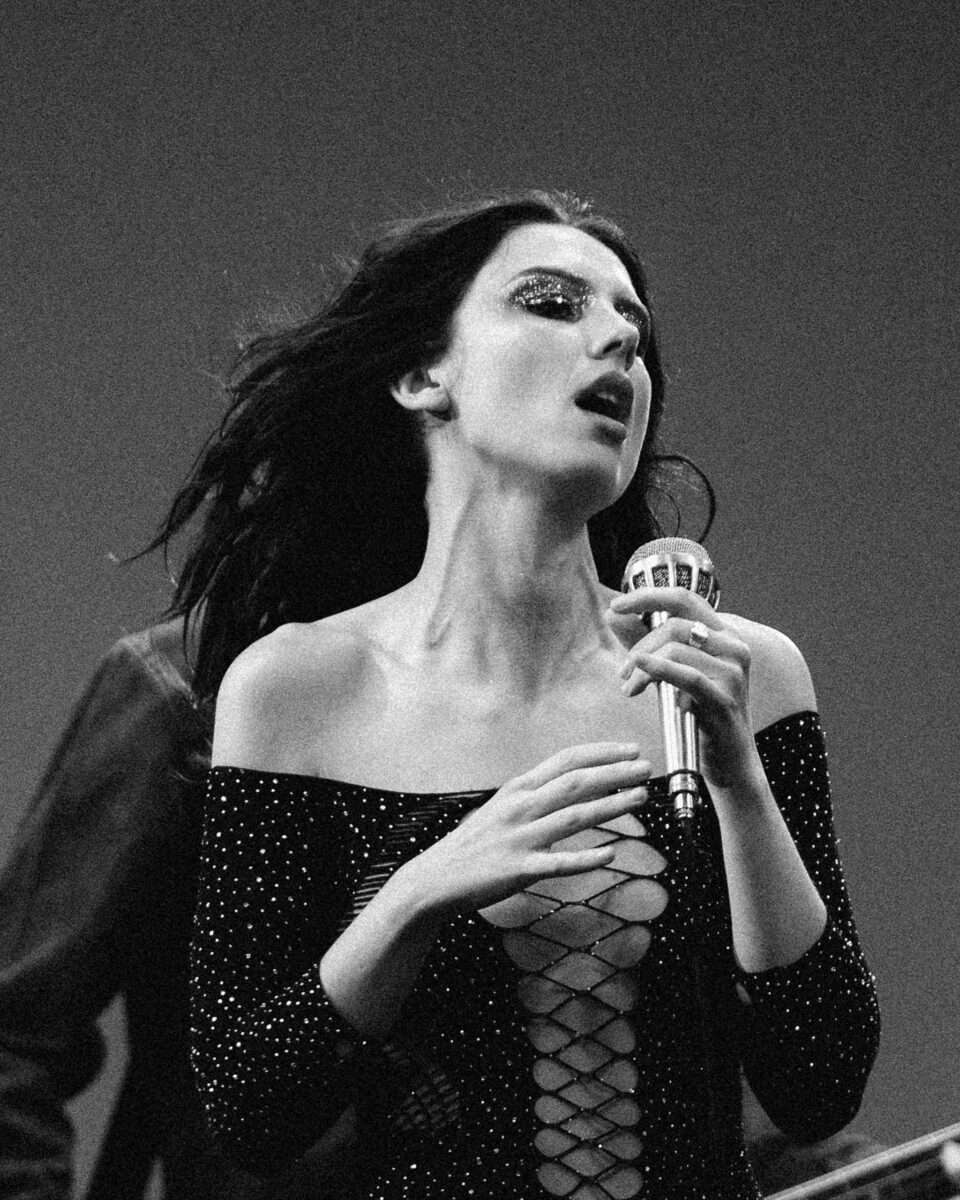
“I think sometimes there’s a kind of machoism in rock music where they’re scared to use their voice in any way that isn’t ‘cool.’” — Ellie Rowsell

photo by Harriet Bols
Rowsell’s vocals are a masterclass in this versatility, effortlessly shifting from a delicate whisper to haunting talk-singing and then to a soaring powerhouse roar. To contrast with the powerful vocals on “Bloom,” take another single from The Clearing: “The Sofa” is a serene, dreamy, and warm ballad that I’ve enjoyed having stuck in my head for the past three weeks. Interestingly, it seems to occupy a parallel sonic space to Chappell Roan’s hotly debated new release “The Subway.” It’s a trajectory that’s cleaner, more melodic, and more accessible, moving Wolf Alice toward a pop-heavy sensibility and away from the lo-fi, raw grit of their early work. “The Sofa” is also noteworthy for its more mature subject matter of finding peace and comfort in one’s life. The lyrics begin vulnerably—“Hope I can accept the wild thing in me / Hope nobody comes to tame her”—before moving to the line, “I can be happy, I can be sad / I can be a bitch when I get mad / I wanna settle down, oh, to fall in love / But, sometimes, I just want to fuck / I love my life, I love my life.”
The pensive and vulnerable “Play It Out” deals with similar themes. On this track, the piano again serves as the primary melodic force, its subtle instrumentation making way for Rowsell’s voice to soar. In the opening seconds, she delivers the astounding question: “When my body can no longer make a mother of me / Will I change my notion of time?” The song goes on to wrestle with the anxieties and hopes of aging, as well as addressing the reclamation of time and self-worth.
“Just Two Girls” is another introspective bright spot on the album. Like the much earlier “Bros,” it celebrates friendship with an elegant, ’70s-influenced instrumental that’s bouncy and jazzy with a sweet bass line. “I had a couple of really healing conversations with my girlfriends, and they often take place at a bar, just sitting very casually,” says Rowsell. “You realize how validating or important those chats are with your girlfriends, you know, if you’re thinking a lot about body image or motherhood or these things that are taxing on your emotions. [Those conversations] held huge gravitas to me, and so it was kind of like putting it into song to appreciate the importance of a good chat.”
One of the most delightful surprises on the album is “White Horses,” wherein drummer Amey is at the helm, interrogating family, identity, and heritage against a gentle psychedelic soundscape. “I personally had quite a bit of fun on ‘White Horses’ doing the ambient stuff and some of the soundscape-y stuff underneath,” notes Ellis. “Greg [Kurstin] and I were playing with guitar pedals and fiddling around for a bunch of takes, and that’s what a lot of those splashy, odd noises are. That was really good fun. It was also very much trying to focus on the fundamentals more than being really, really wiggy, I guess. The experiment for me in [The Clearing] was to almost stop being so experimental. This album was hyper-focused and very considered.”

“The experiment for me in The Clearing was to almost stop being so experimental. This album was hyper-focused and very considered.” — Joel Amey

photo by Alice Beckham

photo by Alice Beckham
In a discussion about the album’s composition more broadly, Amey went on to highlight “Safe in the World” as another moment he was particularly proud of. The track has a distinct blues-country feel, with a profound emotional resonance despite its elusive subject matter. The band also made deliberate use of strings across the album, as showcased brilliantly on the opening track, the balladic “Thorns,” with its funky breakdown and gut-punch lyrics (“I must be a narcissist / God knows that I can’t resist / To make a song”).
As a band hellbent on perfecting their craft and creating engaging new sounds, Wolf Alice also remain grounded in the taxing realities of the modern music industry. Recent, widely publicized comments from artists like Chappell Roan and Lily Allen have shed light on the continued financial struggles of musicians in the streaming era. In that vein, Wolf Alice guitarist Joff Oddie recently spoke to Members of Parliament about the financial sustainability of emerging artists. He argued that broader industry shifts, such as the low value of streaming and rising operational costs, threaten to make music an upper-class sport, robbing talented individuals of opportunity.
“If we want great art in the future, we need to support the emerging stuff, which goes all the way down to schools and all the way up to record labels,” he argues. “[If not,] you’ll lose good shit—probably the best stuff—and then you’ll just have privileged people making it, which is kind of sucky, right?” Oddie’s advocacy illustrates a commitment to the entire musical ecosystem that extends far beyond Wolf Alice’s own success. The group’s combination of artistic innovation and a sense of responsibility to the broader music community is what makes them great.
“If we want great art in the future, we need to support the emerging stuff, which goes all the way down to schools and all the way up to record labels. If not, you’ll lose good shit—probably the best stuff.” — Joff Oddie
Wolf Alice’s journey is a testament to the power of a band operating as a true unit. While Rowsell’s chameleonic vocals and incisive lyrics often take the spotlight, the musical foundation built by Oddie’s shimmering, often brutal guitar work, Ellis’s thunderous bass lines, and Amey’s dynamic, shapeshifting drumming is what gives Wolf Alice their unique power. They’re a collaborative force, an organism that breathes and moves as one, capable of pivoting from a tender lullaby to a full-throttle sonic assault within the same breath. Wolf Alice has reached their clearing not by abandoning their sound, but by refining it into something timeless and assured. FL
